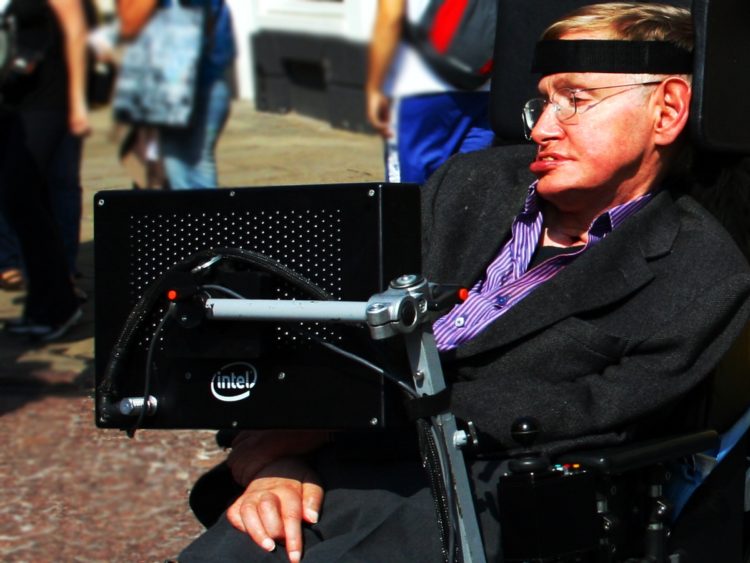By Gabriel Princewill-
Hawking was the author of a brief history of time and was a living legend in the field of cosmology 76-year-old Hawking died at his home in Cambridge, England, early on Wednesday morning. A statement from Hawking family read:
“We have deeply saddened that our beloved father passed away today. He was a great scientist and an extraordinary man whose work and legacy will live on for many years,” Hawking’s family said in a statement. “His courage and persistence with his brilliance and humor inspired people across the world. He once said, ‘It would not be much of a universe if it wasn’t home to the people you love.’ We will miss him forever.”
Diagnosed with a rare form of motor neuron disease in 1964 at the age of 22, Hawkin’s predicted lifespan was very limited. He was not expected to survive the disease beyond a few years, but he defied medical expectations and lived another four decades plus. His confinement to a wheelchair and additional dependence on a computerized voice system for communication was a lifetime moving feature of his unfortunate condition.
Despite his physical plight, Hawkins continued to travel the world, providing lectures and writing scientific papers about the basic laws governing the universe. Prof Hawking explained the Big Bang and black holes in his best-selling book A Brief History Of Time.
LEGACY
Hawkings was one in a million. He left a legacy worthy of an inspiration and challenge to all well able-bodied individuals. His crippling disease did not stop him transcending the accomplishments of millions of bright and capable able-bodied individuals. In a sense, he was a freak of nature, but this doesn’t exempt any of his unproven theories from ongoing scrutiny.
His studies on black holes and relativity had an impact on the world’s perception of the Universe, influencing millions throughout the years. This innovative insight was an eye-opener to the scientific community in his day, but it has never been properly substantiated.
Many believe it could be decades before some of his unproven theories are empirically certified. One of Hawking’s most important findings was “Hawking Radiation,” the theory that black holes are not completely black after all, but rather emit radiations that ultimately cause them to disappear.
VERIFICATIONS
The difficulty if not impossibility of verifying some of Hawkins unique theories is the reason the Nobel prize eluded him throughout his extraordinary years on earth. Theoretical scientific discoveries always require independent corroboration from observational data. In the case of black holes and the big bang, it wasn’t possible to do this.
Hawking strong conviction in the big bang theory championed by Charles Darwin was widely documented, but the legendary physician never substantively enunciated the components of the theory. One of the reasons the big bang theory was never been demonstrable follows the intuitive notion that a bang always destroys and seldom ever creates.
If the big bang is an exception to the usual trend of known bangs and their consequences, the absence of preceding catalyst to the big bang meant that even if elite scientists accepted the theory as a strong possibility, it couldn’t be adopted as an irrefutable fact.
Hawkins scientific insight was so innovative that many would plead forgiveness for confidently adopting every unique theory he discovered.
UK Prime Minister Theresa May described him as “a brilliant and extraordinary mind – one of the great scientists of his generation” whose “courage, humor and determination to get the most from life was an inspiration”.



